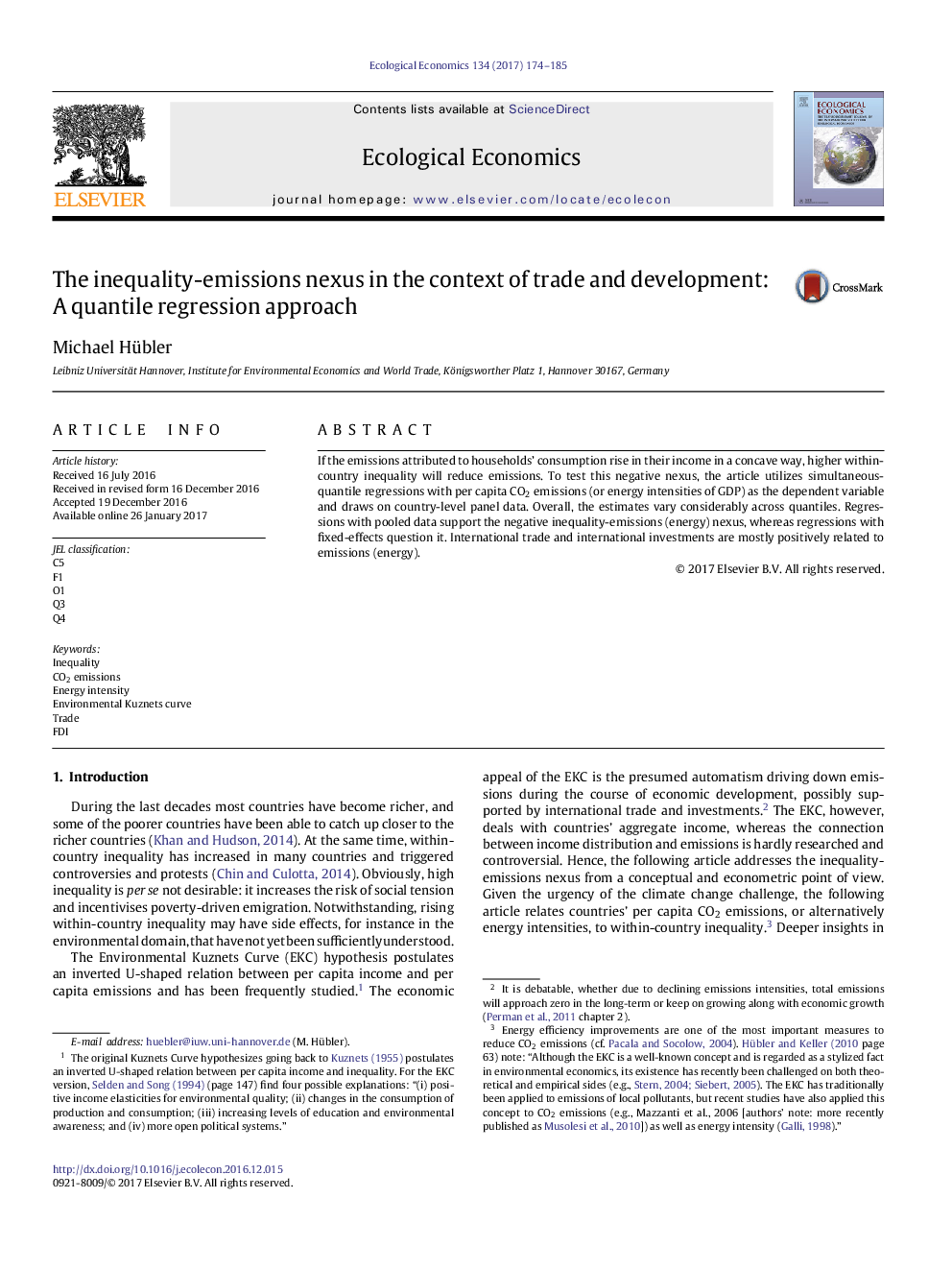| Article ID | Journal | Published Year | Pages | File Type |
|---|---|---|---|---|
| 5048690 | Ecological Economics | 2017 | 12 Pages |
â¢If emissions rise less than proportionally in income, higher within-country inequality will reduce emissions.â¢(Simultaneous-) quantile regressions are a new approach to the EKC and trade.â¢Applied to country panel data they indicate a negative correlation between inequality and emissions.â¢Regressions with country fixed-effects challenge this finding.â¢Trade is positively correlated with emissions except at the highest quantiles.
If the emissions attributed to households' consumption rise in their income in a concave way, higher within-country inequality will reduce emissions. To test this negative nexus, the article utilizes simultaneous-quantile regressions with per capita CO2 emissions (or energy intensities of GDP) as the dependent variable and draws on country-level panel data. Overall, the estimates vary considerably across quantiles. Regressions with pooled data support the negative inequality-emissions (energy) nexus, whereas regressions with fixed-effects question it. International trade and international investments are mostly positively related to emissions (energy).
